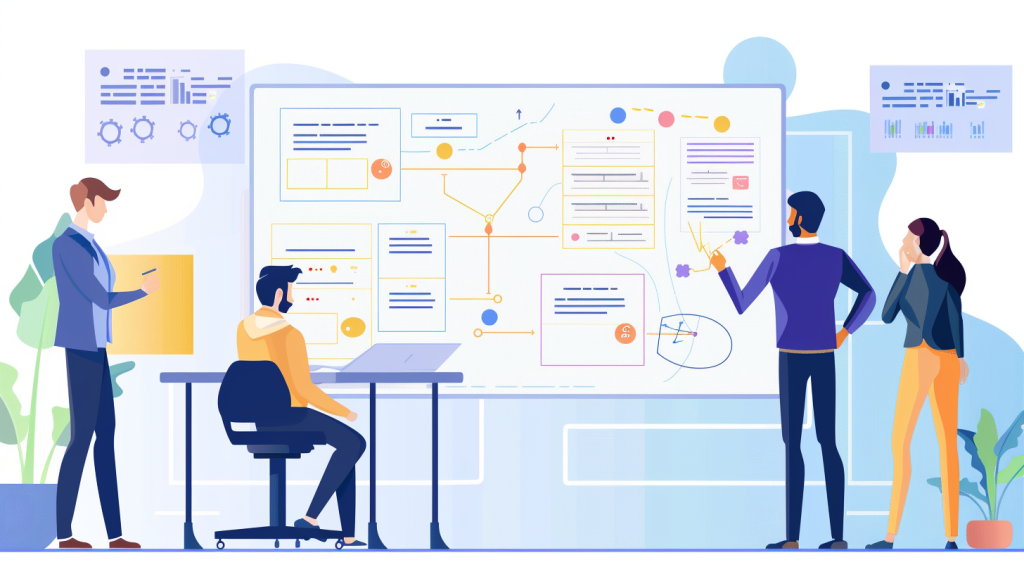
Artificial Intelligence (AI) projects are complex, requiring a unique blend of technical expertise, data science skills, and business acumen. Unlike traditional software development, AI projects often involve uncertainty, experimentation, and iterative refinement. Effective project management is crucial for navigating these challenges and ensuring successful AI implementations. This post outlines best practices and methodologies for managing AI projects effectively.
The Unique Challenges of AI Project Management
- Data Dependency: AI projects heavily rely on data quality, availability, and relevance. Data acquisition, cleaning, and preparation are often significant bottlenecks.
- Algorithm Complexity: AI algorithms can be complex and require specialised expertise to develop, train, and deploy.
- Uncertainty and Experimentation: AI projects often involve experimentation and iterative refinement, as the optimal solution may not be known upfront.
- Ethical Considerations: AI projects raise ethical concerns related to bias, fairness, and transparency, which must be addressed proactively.
- Stakeholder Alignment: Aligning the expectations of technical teams, business stakeholders, and end-users can be challenging.
Best Practices for Managing AI Projects
- Define Clear Objectives and KPIs:
- Business-Driven Goals: Start by clearly defining the business objectives that the AI project aims to achieve.
- Measurable KPIs: Establish key performance indicators (KPIs) to track progress and measure success.
- Example: Increase customer retention by 15% using AI-powered personalised recommendations.
- Adopt an Agile Methodology:
- Iterative Development: Break down the project into smaller, manageable sprints with clearly defined goals.
- Continuous Feedback: Regularly solicit feedback from stakeholders and incorporate it into the development process.
- Adaptability: Be prepared to adapt to changing requirements and unexpected challenges.
- Prioritise Data Quality and Governance:
- Data Assessment: Conduct a thorough assessment of data quality, completeness, and relevance.
- Data Cleaning and Preprocessing: Implement robust data cleaning and preprocessing techniques to ensure data accuracy.
- Data Governance Policies: Establish clear data governance policies to ensure data privacy, security, and ethical use.
- Build a Multidisciplinary Team:
- Data Scientists: Experts in machine learning algorithms and statistical modelling.
- Data Engineers: Responsible for data acquisition, storage, and processing.
- Software Engineers: Develop and deploy AI-powered applications.
- Business Analysts: Bridge the gap between technical teams and business stakeholders.
- Project Managers: Oversee the project, manage timelines, and ensure effective communication.
- Embrace Experimentation and Iteration:
- Hypothesis Testing: Formulate clear hypotheses and design experiments to test them.
- A/B Testing: Use A/B testing to compare different AI models and identify the best performing solution.
- Continuous Learning: Encourage the team to learn from both successes and failures.
- Focus on Explainability and Transparency:
- Explainable AI (XAI): Use techniques to make AI models more transparent and understandable.
- Bias Detection: Implement methods to detect and mitigate bias in AI algorithms.
- Ethical Considerations: Proactively address ethical concerns and ensure responsible AI development.
- Stakeholder Communication and Engagement:
- Regular Updates: Provide regular updates to stakeholders on project progress, challenges, and outcomes.
- Demo and Showcase: Organise demos and showcases to demonstrate the capabilities of the AI solution.
- Feedback Incorporation: Actively solicit feedback from stakeholders and incorporate it into the development process.
Methodologies for AI Project Management
- CRISP-DM (Cross-Industry Standard Process for Data Mining): A widely used methodology for data mining and AI projects that focuses on iterative development and continuous improvement.
- Agile AI: An adaptation of the Agile methodology specifically designed for AI projects, emphasising flexibility, collaboration, and rapid prototyping.
- Design Thinking: A human-centred approach to problem-solving that emphasises understanding user needs and iteratively developing solutions.
How AI Consulting Services Can Help
- Expert Guidance: AI Consulting Services can provide expert guidance on AI project management best practices and methodologies.
- Team Augmentation: Supplement your team with experienced data scientists, data engineers, and AI project managers.
- Risk Mitigation: Identify and mitigate potential risks associated with AI implementation.
- Accelerated Results: Expedite the development and deployment of AI solutions.
Conclusion
Effective project management is essential for navigating the complexities of AI implementation and achieving successful outcomes. By adopting these best practices and methodologies, organisations can increase their chances of delivering impactful AI solutions that drive business value.